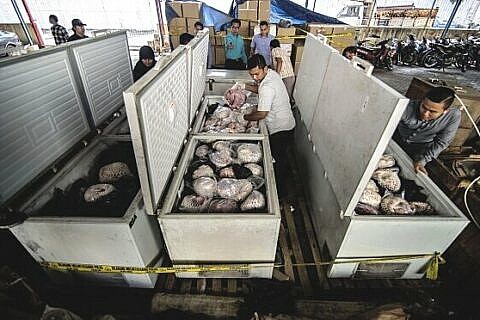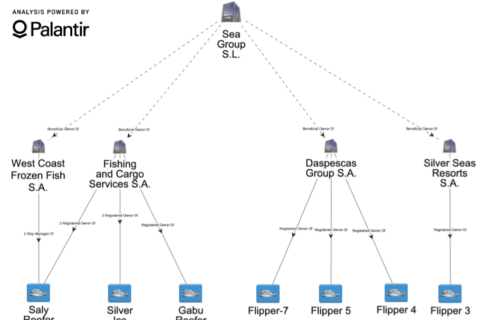Money Tree
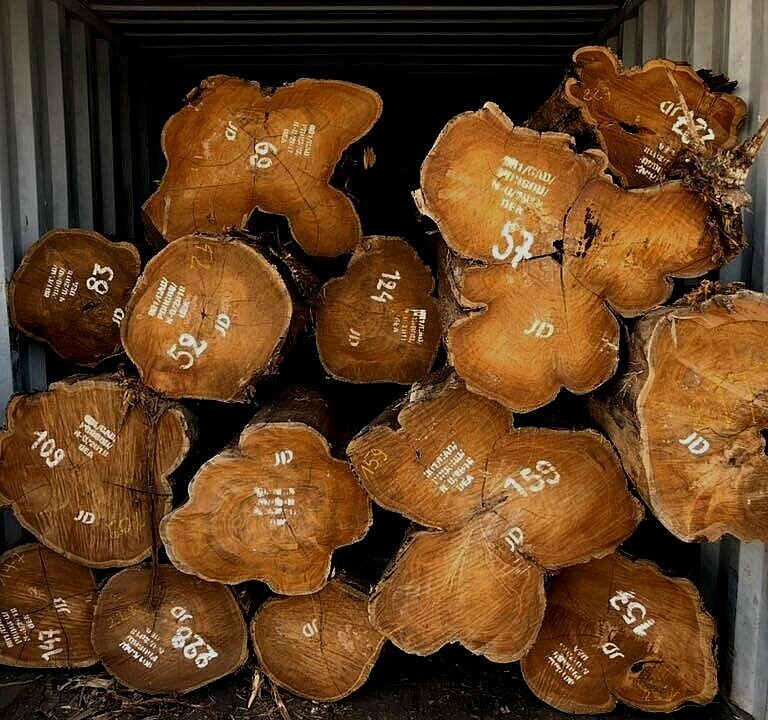
Money Tree serves as the first comprehensive review of the regulatory and security environment surrounding the teak trade. In it, we examine how conditions within South Sudan have made its teak sector more vulnerable to exploitation from illicit actors and contributed to the country’s instability:
Executive Summary #
Timber is a valuable natural resource that, like other extractives, is vulnerable to exploitation due to high profit margins and regulatory challenges. In fact, illegal logging is the most lucrative natural resource crime, currently valued between $52 and $157 billion per year.
Teak (tectona grandis) is a high-value tropical hardwood used for wood carving, furniture, and shipbuilding. For years, global markets have coveted teak for its durability, beauty, and strength. The teak trade, both licit and illicit, contributes to a variety of issues, including deforestation, environmental degradation, and displacement of wildlife in India, Myanmar, and other teak producing countries. Deforestation of teak has escalated as global demand grows, a direct consequence of teak’s high value and scarcity. In recent years, many countries have been forced to implement teak logging and exporting bans to curb deforestation, particularly in Asian countries that have depleted their domestic teak forests. However, teak continues to be logged around the world, often using unsustainable logging practices to satisfy international demand.
Through our investigations, we’ve found that millions of dollars of teak is coming from a very unlikely source – South Sudan.
Originally planted in the 1940’s by British colonists, South Sudan’s teak reserves are among the largest in Africa. The country gained independence amidst ongoing conflict around the same time that its teak plantations reached maturity. Within this conflict, exploitation of natural resources, including teak, has been an important source of revenue for armed groups, contributing to instability. According to the United Nations Human Rights Council, “oil revenues and income from other natural resources such as illegal teak logging, have continued to fund the war, enabling its continuation and the resulting human rights violations.”
Additionally, as in many other countries around the world, South Sudanese teak is also being exploited at an unsustainable rate. Rising international demand for South Sudan’s teak has driven environmentally harmful and unsustainable exploitation of the country’s teak forests that could otherwise have long-term benefits for South Sudan’s economy. Deforestation in South Sudan has become such an issue that, in 2018, South Sudan banned the export of charcoal in an attempt to counter illegal logging of the country’s forests, including teak.
This report serves as the first comprehensive review of the regulatory and security environment surrounding this little-researched topic. In it, we examine how conditions within South Sudan have made its teak sector more vulnerable to exploitation from illicit actors and contributed to the country’s instability:
First, conflict environments create opportunities for illicit actors such as armed groups to exploit natural resources for financial profit. Particularly in South Sudan, natural resources including teak are central to the conflict dynamic because of their role in financing armed actors, including government and opposition forces.
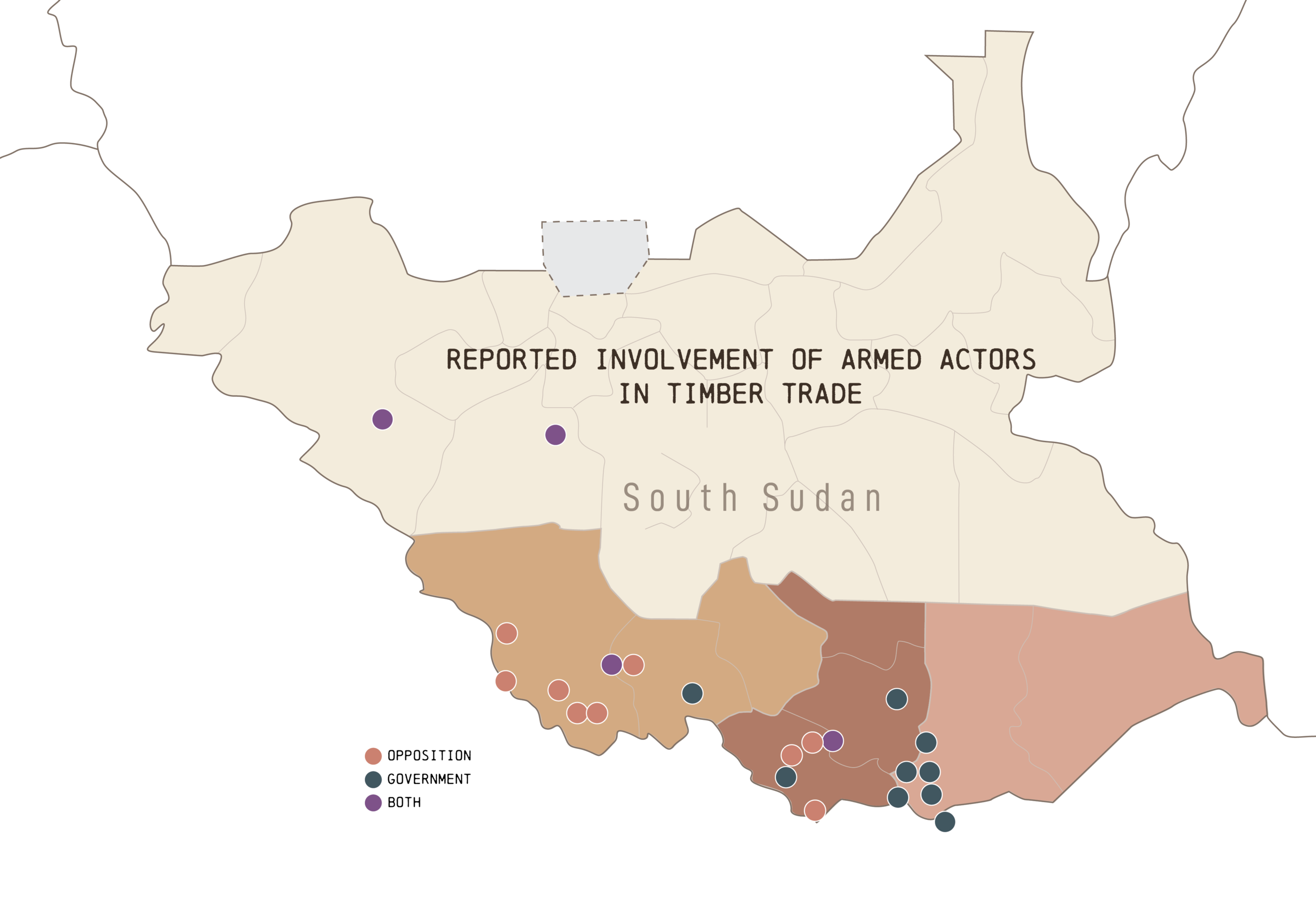
Second, a lack of clear regulation makes it difficult to distinguish between legal and illegal teak operations in South Sudan. This leads to regulatory gaps that benefit actors engaged in illicit activity. The same conditions that make teak profitable for conflict finance also appeal to corrupt politicians and other illicit actors.
Third, international demand for teak has exacerbated underlying issues plaguing South Sudan’s teak sector.
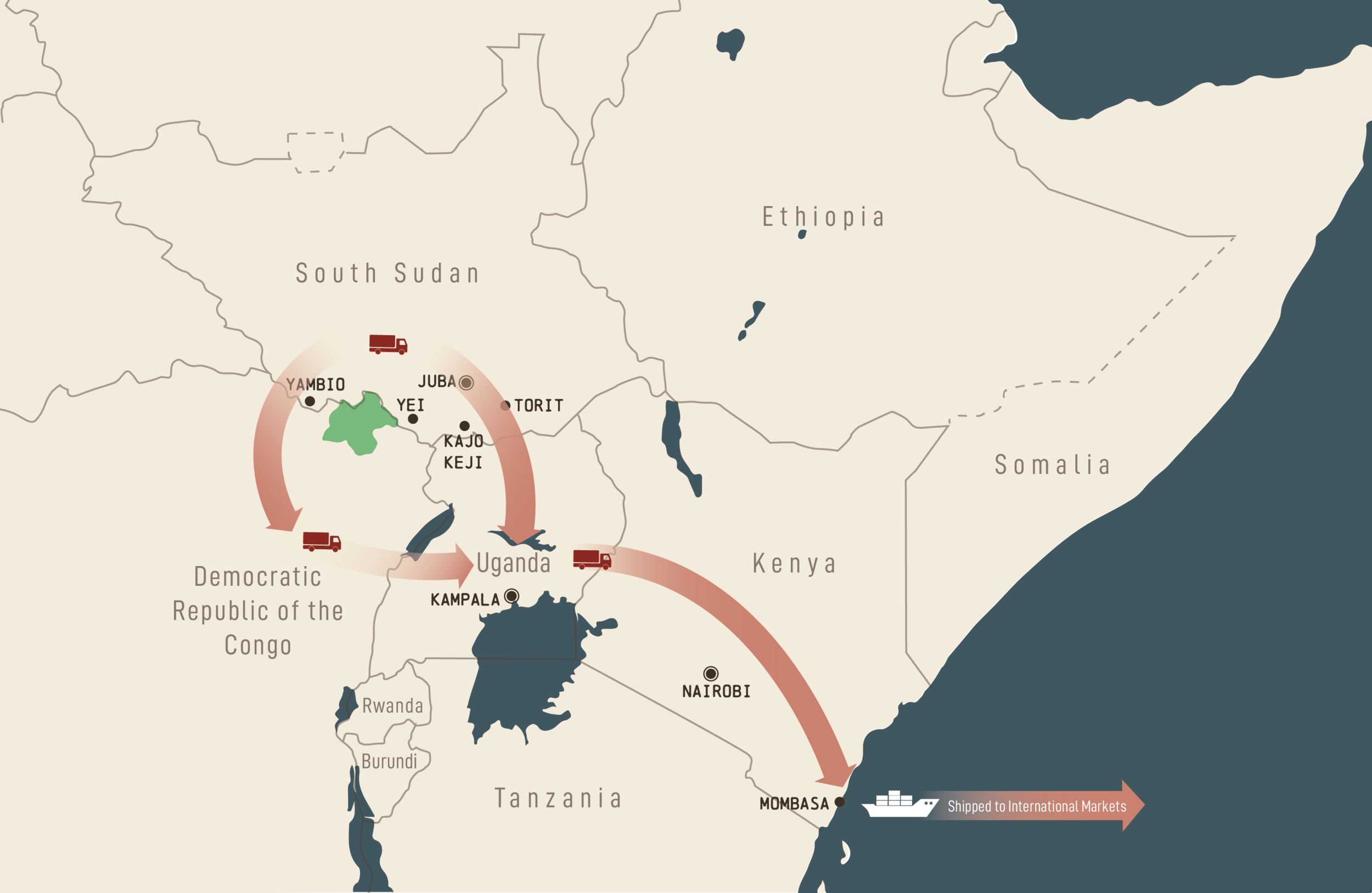
Because there is no publicly available trade data for South Sudan, C4ADS used trade data from other markets within the teak supply chain to offer new insight on the likely size of the South Sudanese teak sector, as well as how opportunistic foreign actors exploit this trade. Trade data reviewed by C4ADS shows that teak exports may be more than 2400 times larger than figures shown in Comtrade data provided to the UN.
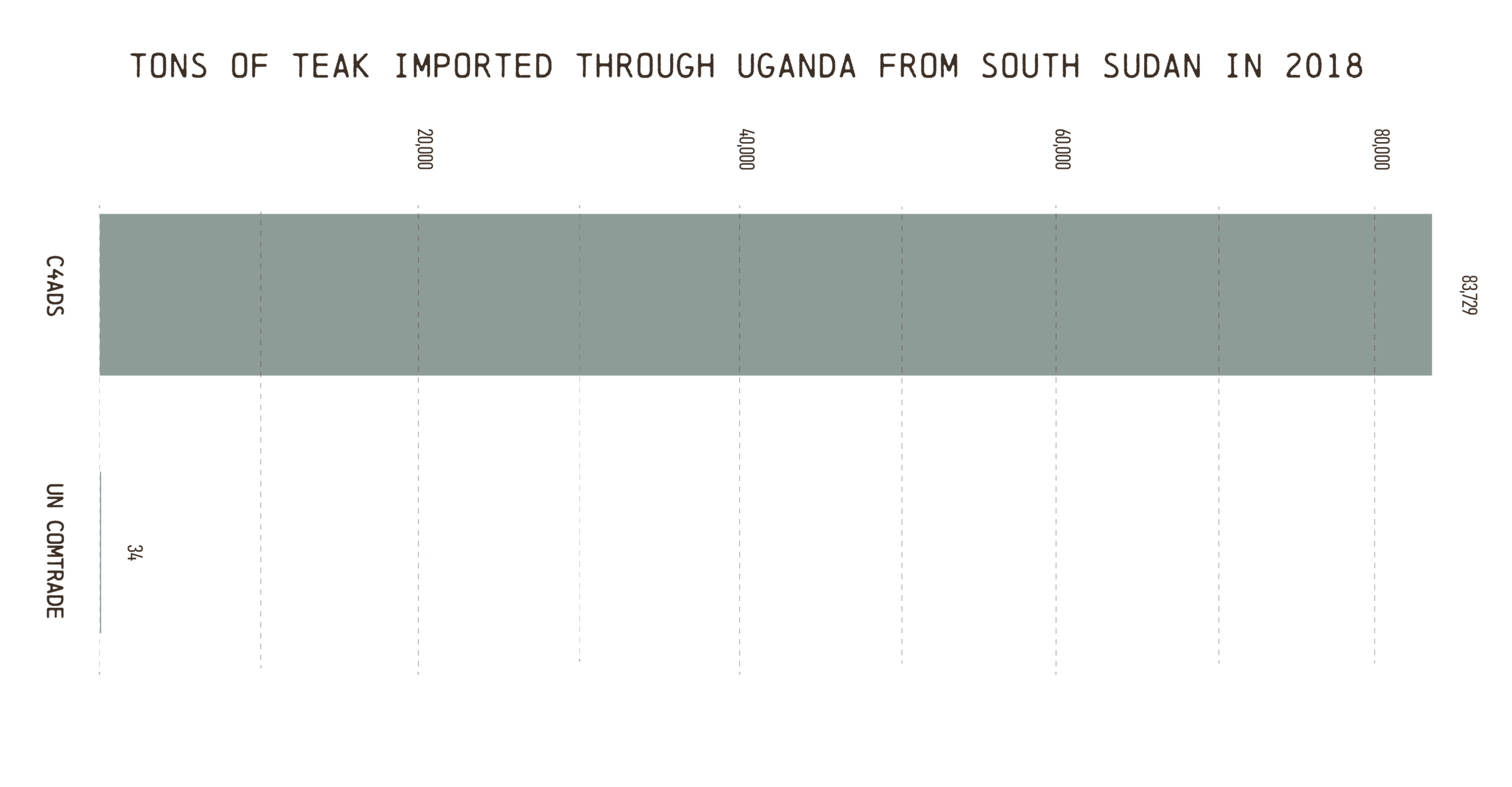
Finally, we highlight a case study of a South Sudanese teak company, Lukiza Limited, which has seemingly been involved in teak logging and was beneficially owned by foreign political elites.
If sufficiently regulated and managed, teak could be a sustainable revenue source for South Sudan’s economy and local communities. If left unchecked, unregulated and unsustainable logging will continue to decimate remaining teak reserves and deprive endangered wildlife of important habitat. In the meantime, the profits benefit armed actors on both sides of the conflict as well as foreign political elites.
The story of South Sudan’s teak reminds us that natural resource crime and conflict finance are inextricably linked, meaning international markets have an obligation to responsibly engage with the teak sector. The exploitation of natural resources is not only an environmental problem, but a human security issue.
Read Reuters Exclusive

